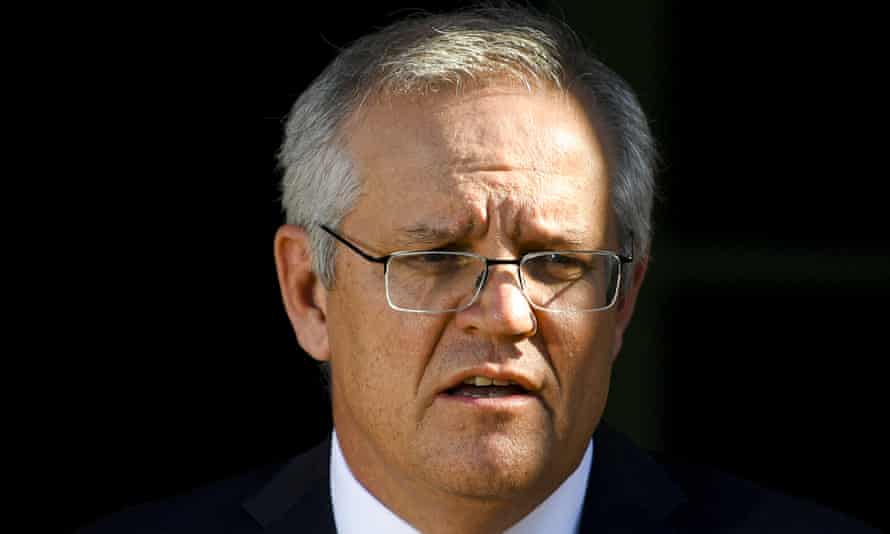Extract from The Guardian
The ‘it’s not a race’ vaccine mantra has been discarded, but the prime minister is still running around in circles trying to evade responsibility.

‘The prime minister is the most powerful person in the country, and is not a slave to anything – apart from his own deeply ingrained habit of spinning and deflecting when legitimate questions get asked.’
First published on Wed 21 Jul 2021 20.38 AEST
It was hard to keep up.
A reporter asked Scott Morrison on Wednesday whether he would consider urging the Australian Technical Advisory Group on Immunisation (Atagi) to change its latest medical advice on AstraZeneca, opening the inoculation up to people aged 59 and under “given more than half of the population is in lockdown and the situation in Sydney is getting worse”.
Morrison wanted people to know he was on it. “This a constant appeal, I can assure you,” he said. “It’s a constant appeal.”
As well as constantly appealing to Atagi (which translated a little later in the press conference to “relaying sentiments” to Prof Allen Cheng and “appropriate conversations that are had with the head of Atagi … done through the secretary of health and the chief medical officer”), the prime minister thought the states needed to crack on with getting jabs in arms.
(For context, the states battling the current outbreaks are screaming for more Pfizer jabs. The Berejiklian government had made another public plea for more Pfizer earlier on Wednesday.)
But Morrison said he would “encourage states to be using the AstraZeneca vaccines – to be dispensing them through those state-based clinics to get as many people vaccinated as possible”. He noted in the United Kingdom the “AstraZeneca vaccine … has been the primary vaccine through which they’ve been able to achieve the vaccination levels there”.
Although this wasn’t actually a medical opinion – just for the record. “I am not your doctor and therefore, I would not be giving you medical advice,” the prime minister said.
A bit later in the press conference, another reporter pointed to the elephant in the room. Some of the states weren’t willing to push AstraZeneca because of hesitancy in the community. Perhaps that hesitancy, the reporter ventured, had been created by “your own government’s miscommunication around AstraZeneca and whether or not people should take it”.
(For context, the advice about AstraZeneca that has been relayed to people chaotically over the past couple of months has been: take it if you are over 50, then take it if you are over 60, then take it if you are under 40 if your doctor says OK.)
Perhaps affronted by this entirely valid and deeply obvious suggestion, Morrison promptly sprinted back to the inviolable wisdom of experts. Having just said very clearly that he wanted Atagi to change the public health advice about AstraZeneca – that this was “a constant appeal” he was engaged in – the prime minister then proceeded to express shock that he might be able to influence anything.
“Well, I cannot control what Atagi advises,” the prime minister said.
Assuming his best checkmate affectation, Morrison rounded on the reporter. So if you are seriously suggesting that the government should have neglected medical advice in the handling of the pandemic …
I wasn’t physically present at Morrison’s press conference at the Lodge so I don’t know if Jonathan Kearsley from the Nine Network actually scratched his head in confusion or just scratched his head for Australia rhetorically when he responded by noting: “You just said there is a constant appeal for them to change that advice.”
“Sure,” Morrison replied, deadpan, before giving the call to another reporter who had a question about something other than the pandemic.
This performance really was quite something.
No comments:
Post a Comment